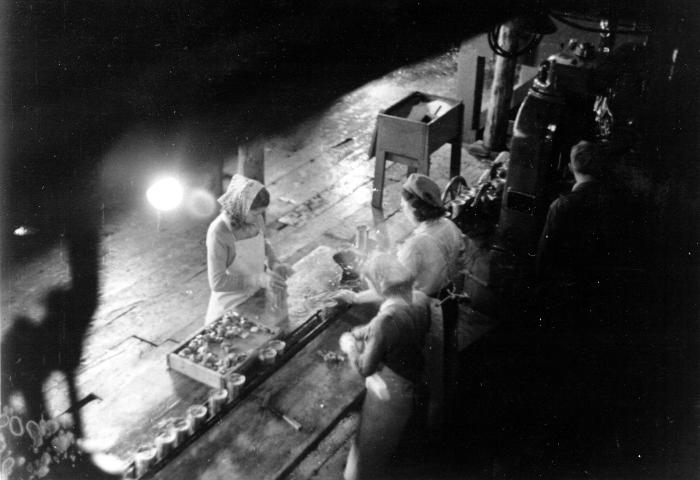Can — Paan'kaaq

Kodiak relies heavily on labor to process locally caught fish for delivery to the world‘s market. Alutiiq people have been part of the cannery workforce for more than a century, contributing to all stages of fishing processing from catching and cleaning fresh-caught salmon to packing canned products for shipment. Experienced workers are important at all stages of the canning process, as canning must be done properly to avoid spoilage.
In the early decades of the commercial fishing industry, canneries hired Chinese workers. Young Chinese men traveled to Alaska from the Pacific Northwest, where they gutted fish and soldered cans by hand for minimal wages. Federal bans on Chinese immigration, mechanization of can production, and poor working conditions reduced the Asian workforce. By the 1920s, Alutiiq people began replacing Chinese workers. Men worked on small boat crews, harvesting fish for the canneries. Women, the fish processors in traditional society, took jobs on the slime line, the patch tables, and the can lock.
Alutiiq women remember working long, noisy shifts in canneries beside their sisters, mothers, and aunties. The rooms were damp and dark, with few windows. Here they stood for as many as fourteen hours a day on a floor that never stopped vibrating from the constant work of heavy machinery. A young woman might spend all day every day feeding lids into a canning machine. Yet many have fond memories of the close cannery community, enduring friendships, romances, and mess hall meals that seldom featured salmon.
